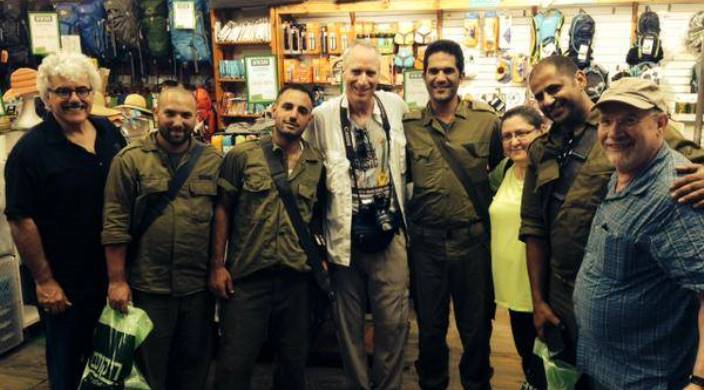
Anyone who has ever planned a trip knows that a great deal of time and effort is involved. This emergency solidarity mission took us across this country over the five days and provided opportunities to hear from a variety of experts including four Members of Knesset. And without exception, every one of these meetings was of great value.
Just as our tradition teaches us that there is meaning in the white spaces of the black letters in the Torah, sometimes our most profound experiences occur not in the scheduled instances but in the spontaneous ones. The unplanned interactions were, for me, the most meaningful moments of this trip.
Israel is a tiny country, and with mandatory army service, it is impossible to not know someone who is currently involved in the conflict. A brother. A son. A nephew. The friend of the son of a friend. Doesn’t matter if you are hotel maintenance or a Member of Knesset. And more than three weeks into Operation Protective Edge, everyone has his or her own personal experience with sirens or dashing into a shelter. No one is immune to the constant threats.
This is what we came to do: to listen. Not to pontificate. Or speculate. Not to solve. Or to advise. But to listen. To really listen.
In Ashkelon, we met some soldiers while shopping for the Lone Soldier Center: In Memory of Michael Levin, whose yahrtzeit (the anniversary of his death) was just this week. While our task to buy supplies for the Lone Soldiers was admirable, we had actual soldiers right in front of us. So we introduced ourselves. We told them who we were and why we had come to Israel right in the midst of the war. They told us that they were combat mechanics charged with fixing the tanks and other vehicles coming out of Gaza. We asked them what could we buy that would be the most beneficial.
“Headlamps,” they said, so that they could use both hands to work in the dark.
So we did. We purchased headlamps. For their entire unit.
And we listened. And looked at photos of their wives and their children. And, after taking pictures so that their buddies would believe that a crazy group of Reform rabbis had come all the way from the United States just to be there in that moment and buy them new headlamps, reluctantly we parted.
Days later, we learned that “our” unit had been the one tasked with fixing the tread on a tank damaged in Gaza. Our headlamps were being put to good use.
Over and over, we told people why we had come now. Why, when common sense ought to send us running in the opposite direction, our emotions prevailed and brought us to Israel.
“How long have you been here?” asked Dror, the taxi driver.
“Just a week.”
“Those huge bags for just a week?” he laughed.
“They were filled with things I brought for the soldiers. Now they are mostly empty.”
His eyes glistened. As he whispered, “thank you."
Related Posts

Staying Connected with Our Loved Ones Even When we Disagree

How the Israel-Hamas War Disproportionately Affects Israelis with Disabilities

